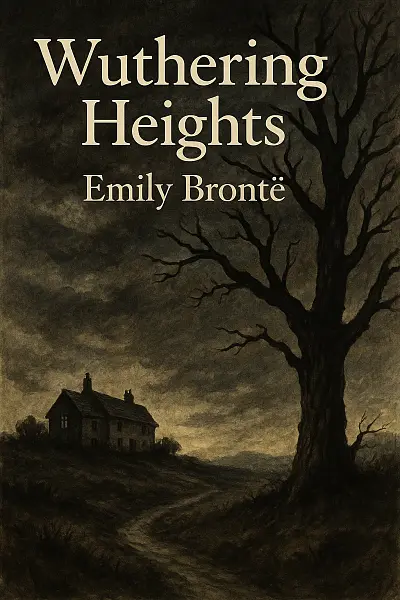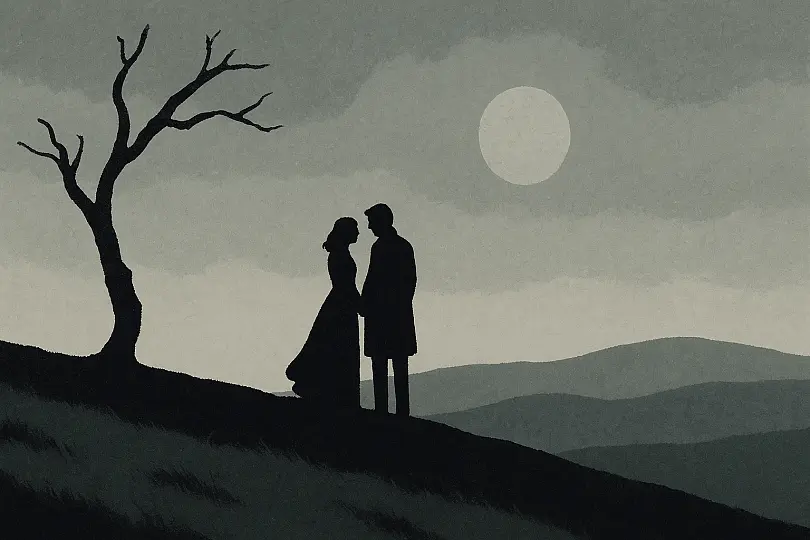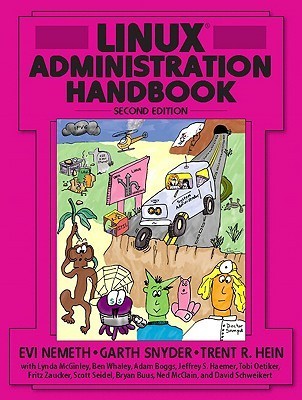
Wuthering Heights
by: Emily Brontë
Catherine Earnshaw and Heathcliff grow up together on the wild, wind-swept moors of Yorkshire, their bond as fierce as the environment they inhabit. Everything changes when Heathcliff’s outsider status and Catherine’s choices threaten to rip them apart.
Pulled between family duty, social status, and the all-consuming pull of their love, Catherine and Heathcliff spiral into a bitter struggle for identity and belonging. As obsession and pride drive their decisions, the stakes rise—not just their happiness, but the peace of everyone at Wuthering Heights.
Told by multiple narrators, the novel pulses with Gothic intensity, passion, and twisted longing—leaving you hanging on: will they or won’t they reclaim what they've lost?
"“Love, unbound by reason or time, carves shadows as deep as the moors themselves upon the hearts that dare to harbor it.”"
Let's Break This Down
The Author's Voice
Atmosphere
- Brooding and Wild: The entire novel pulses with a stormy, windswept energy. Expect howling moors, dark old manors, and a sense of isolation that seeps into every scene.
- Gothic Intensity: A constant undercurrent of menace and emotional turmoil. The mood swings between passionately romantic and deeply unsettling, bathing everything in a haunting, gothic glow.
Prose Style
- Dense and Lyrical: Brontë’s writing is gorgeously lush, full of evocative metaphors and long, intricate sentences. There’s real poetry in her descriptions, inviting you to linger over every line.
- Dialog-Driven: Much of the story unfolds through vivid conversations, giving each character a distinct, memorable voice—sometimes raw and angry, other times heartbreakingly tender.
- Old-fashioned but Accessible: The language leans into its 19th-century roots, but the emotional charge makes it surprisingly gripping, even today. Sometimes you’ll need to pause and savor the phrasing, but you won’t get lost.
Pacing
- Moody and Measured: The story moves at its own deliberate pace—expect long passages of tension-building and character introspection. Brontë takes her time letting relationships twist, splinter, and reform.
- Sudden Surges: Just when things seem slow, the plot erupts in bursts of dramatic confrontation or tragedy, jolting you awake with shock and raw feeling.
- Layered Storytelling: With its nested narratives and shifting perspectives, there’s a sense of gradually unwrapping secrets—sometimes you’ll double back, piecing things together from different angles.
Characterization
- Unvarnished and Intense: Every character is painted in bold, uncompromising strokes. There’s little sugar-coating here—expect flawed, fiercely passionate people whose obsessions and grudges explode off the page.
- Emotionally Charged: Characters feel everything at full volume. The drama isn’t just external—it churns inside them, often in self-destructive ways.
Overall Mood and Feel
- Darkly Romantic, Fiercely Original: This is a book that embraces the wild edges of love and hate. It’s atmospheric, turbulent, and totally uncompromising—a classic that grabs you by the collar and doesn’t let go.
- Not for the faint-hearted or impatient, but utterly unforgettable if you’re willing to dive into its stormy world.
Key Moments
-
Wild Yorkshire moors as a backdrop for obsession and revenge
-
Heathcliff’s midnight return—turning love into haunting vengeance
-
Catherine’s feverish confession: “I am Heathcliff”—pure emotional chaos
-
Gothic chills: ghosts tapping at windows, blurring reality and nightmare
-
Brutal family feuds that span generations and ruin everyone’s dreams
-
Narrative whiplash—multi-layered storytelling with unreliable narrators
-
Love that's destructive, consuming, and absolutely unforgettable

Fierce love haunts wild moors in a tale of passion and revenge
What Readers Are Saying
Right for You If
If you’ve ever been sucked into a moody, dramatic love story that refuses to tie things up with a neat little bow, Wuthering Heights might just be your jam. Seriously—if you enjoy gothic vibes, tragic romances, and characters so messy you kind of want to yell at them, you’ll devour this one. Lovers of brooding atmospheres, family drama, and the wild, windswept English countryside get the most out of this book. It’s also a total treat if you like classics that challenge you and don’t mind digging into obsessive, sometimes toxic relationships.
But—and this is important—if you’re all about fast-paced stories or straightforward, likeable characters, you might find this one...well, kinda exhausting. The plot jumps around a bit, everyone is a little dramatic (okay, a LOT dramatic), and the romance isn’t exactly the swoony kind; it’s more passionate and destructive. If you need your books to have clear moral lessons or neat, tied-up endings, you might want to steer clear.
- Classic lit fans? Yep.
- Hopeless romantics who like their love stories messy and wild? Absolutely.
- Atmosphere lovers who want to feel the chill of the moors? 100%.
But if you prefer light, uplifting reads or don’t love morally grey characters, you might want to pick up something else. Wuthering Heights is for readers who like their drama turned up to eleven and aren’t afraid to weather a literary storm.
What You're Getting Into
If you’re craving a moody, windswept classic with complex relationships and serious gothic energy, “Wuthering Heights” is for you!
- At the heart of the story is the haunting Yorkshire moors, where two neighboring families become entangled in a fierce, all-consuming connection that reverberates for generations.
- As passions clash and loyalties are tested, secret grudges and wild emotions threaten to destroy everyone caught in their path.
Get ready for a tale full of obsession, revenge, and untamed longing—you’ll be swept right into the stormy atmosphere and unforgettable characters!
Characters You'll Meet
-
Heathcliff: The brooding, revenge-driven antihero whose tumultuous love for Catherine shapes the entire story. His quest for vengeance and belonging is both captivating and deeply tragic.
-
Catherine Earnshaw: Spirited and wild, Catherine is torn between her passion for Heathcliff and her desire for social advancement through marriage to Edgar Linton. Her choices ignite much of the novel’s drama and heartbreak.
-
Edgar Linton: The gentle, refined foil to Heathcliff’s intensity. Edgar’s calm nature and steadfast love for Catherine highlight the emotional extremes of the other characters.
-
Nelly Dean: The reliable yet subjective housekeeper who narrates most of the tale. Her perspective weaves together generations of conflict and romance at Wuthering Heights and Thrushcross Grange.
-
Young Cathy (Catherine Linton): Daughter of Catherine and Edgar, she inherits her mother’s strength but finds redemption through kindness and perseverance, helping untangle some of the novel’s long-standing bitterness.
More Like This
If you’ve ever found yourself swept up by the dark, obsessive passion in Jane Eyre, you’ll feel a familiar chill running through Wuthering Heights. Both novels channel that wild, untamed Yorkshire landscape as a backdrop for intense, often toxic relationships—Brontë sisters just had a way with complicated love stories and impossible longing. On the other hand, if you loved the psychological intensity and gothic gloom of Rebecca by Daphne du Maurier, there’s a brooding, almost spectral atmosphere in Wuthering Heights that will absolutely grip you. That sense of haunted spaces and secrets festering beneath the surface connects both stories in the most deliciously eerie way.
Switching gears to screen, fans of the twisted relationships and generational drama in the TV series Succession might be surprised how much echoes between today’s power-hungry families and the legacy of vengeance and obsession that drives the Earnshaws and the Lintons. That same energy—love intermingled with rivalry, and wounds passed down across generations—makes Wuthering Heights feel surprisingly modern, even as it locks us inside its windswept moors.
Critic's Corner
What drives people to destroy what they love most? Wuthering Heights stands as one of literature’s rawest explorations of that question. Emily Brontë transforms a windswept, isolated moor into a crucible where love and hate, revenge and longing, become indistinguishable forces, forging unforgettable characters and relentlessly challenging the boundaries of forgiveness and cruelty. It’s less a romance than a storm—the kind that scrapes every illusion from the landscape, leaving only the truth of human passion behind.
Brontë’s prose is simultaneously spare and fiercely evocative. The alternating narration between Lockwood and Nelly Dean creates an intriguing layer of unreliable storytelling—readers are never sure if they should believe what they’re told. The voices remain subtly distinct: Lockwood’s irony and detachment contrast sharply with Nelly’s emotional engagement and self-justification. Brontë’s descriptions of the heath, the houses, and the changing seasons harness elemental imagery to mirror internal conflict. Her ability to conjure atmosphere, particularly in passages describing the moors or the haunted tension inside Wuthering Heights itself, is genuinely masterful. While some readers might find the Yorkshire dialects and period language daunting, these idiosyncrasies ground the story authentically in its rural setting.
The thematic depth here still startles, even in our cynical age. Wuthering Heights interrogates obsession, power, class, and the possibility (or impossibility) of redemption. Heathcliff and Catherine’s relationship blurs the lines between love and possession, raising difficult questions about identity and autonomy: can the soul ever truly merge with another, or is that simply a recipe for ruin? The class divisions and inherited traumas the characters face resonate with modern readers grappling with privilege, exclusion, and toxic cycles. Religion’s uneasy presence—neither wholly damning nor redemptive—enriches the narrative’s psychological complexity. Ultimately, Brontë’s intense, unflinching gaze refuses to offer easy answers; the story resists sentimental resolution, forcing us to confront both the brutality and the tenderness at the heart of our nature.
Placed alongside her sisters’ better-known novels or the broader Victorian canon, Wuthering Heights is astonishingly radical. Unlike the measured social realism of Jane Austen or Charlotte Brontë’s Jane Eyre, Emily’s novel floods its Gothic roots with existential dread and psychological ambiguity. Its nonlinear structure, its morally ambiguous cast, and its refusal to penalize or reward characters according to convention set it apart not only from Victorian fiction, but from almost anything before or since. As a singular achievement, it contains multitudes: ghost story, doomed romance, existential fable.
Wuthering Heights is not a comforting read; some characters are almost unbearably cruel, and the relentless cycles of vengeance can frustrate. Yet, its failings are the dark reflection of its strengths—Brontë’s refusal to pander to comfort or convention is precisely what makes this novel so alive and essential. For readers who crave fiction that burns with feeling and leaves no easy solace, Wuthering Heights remains a wild, bracing masterpiece.
Community Thoughts
reading wuthering heights at 2am was a mistake, heathcliff's wild rage and ghostly vibes totally wrecked my sleep for a week. this book stormed my brain and refused to settle down. who even writes like this?
I still can't shake off Heathcliff. That guy just lingered in my brain, all wild grief and rage, way past midnight. How can a character be so magnetic and exhausting at once?
cathy’s wild spirit absolutely haunted me. her fierce love and rage lingered in my mind for days. i swear i started seeing ghosts in the moors outside my window. emily brontë, what did you do to my brain?
never thought a book could leave me spiraling like this, but heathcliff is a walking disaster and now he lives rent-free in my mind. who let this man roam the moors with THAT energy? i need answers, not more nightmares.
honestly, heathcliff just lingered in my head like a storm cloud. i couldn't stop thinking about his wild, unpredictable energy. every page with him felt like chaos bottled up—totally unforgettable.
Leave Your Review
Local Take
Why It Matters
Wuthering Heights in the Japanese cultural context is especially striking. Themes of obsessive love and vengeance echo the intensity seen in traditional Noh and Kabuki dramas, while the backdrop of wild Yorkshire moors evokes the untamed nature celebrated in Japanese poetry like haiku or tanka.
- Social status & family: The social stratification and relentless pursuit for familial honor parallel historical samurai codes and feudal hierarchies, creating intriguing parallels—but Heathcliff’s destructive rebellion feels jarring in a society that values harmony (wa) and self-control.
- Isolation: The novel’s emotional isolation resonates, mirroring the loneliness explored in works by writers like Dazai Osamu.
- Tragedy & fate: The relentless tragedy is familiar to lovers of mono no aware—that bittersweet awareness of impermanence.
- Supernatural elements: Ghostly presences feel right at home, bringing to mind Japan’s long tradition of kaidan (ghost stories).
Some plot twists—like Catherine’s defiance—hit harder here, since such overtly passionate rebellion clashes with local expectations of restraint, making her simultaneously fascinating and unsettling. This mix of resonance and friction is exactly why it remains such a cult favorite among Japanese readers!
Food for Thought
Wuthering Heights has sparked plenty of controversy over the years, especially around its depiction of destructive, obsessive love and morally ambiguous characters. Some critics debate whether the novel is a passionate romance or a dark tale of cruelty and revenge, while others address cultural debates about gender roles, social class, and the morality of Brontë's protagonists.
It's definitely a book that gets people talking—and sometimes arguing!
Like what you see? Share it with other readers







